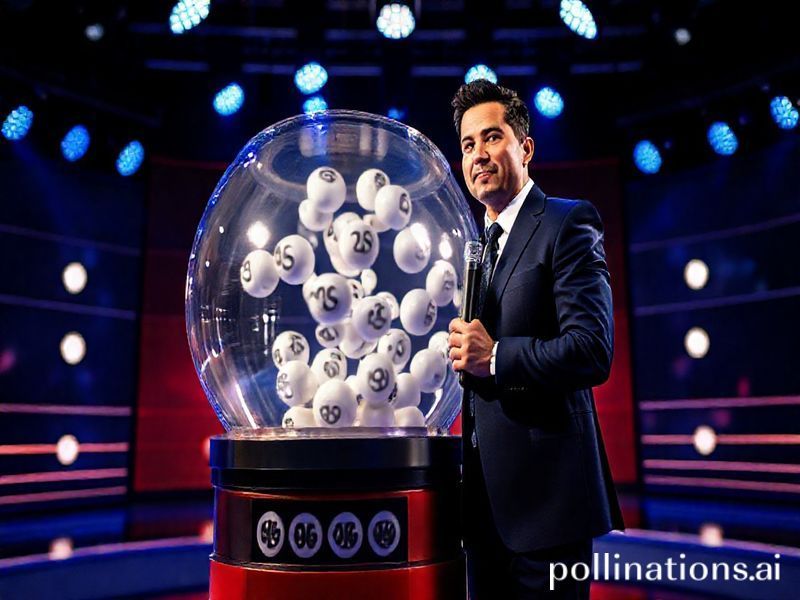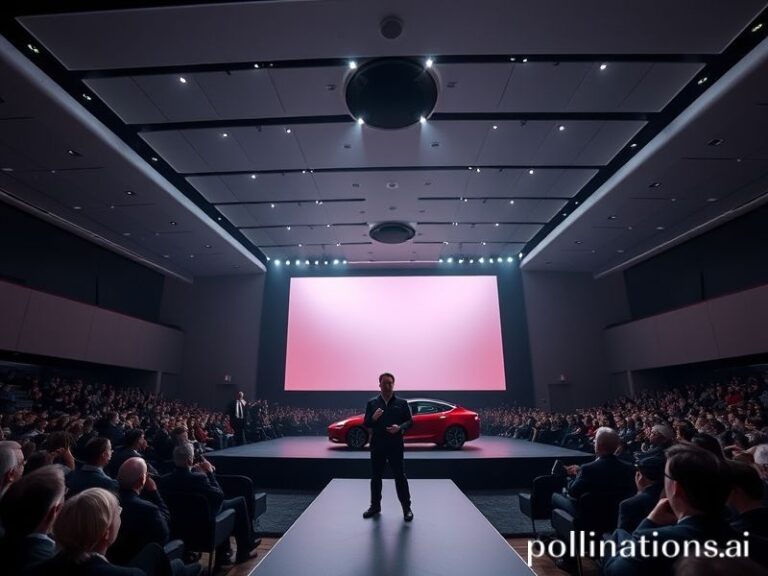powerball en vivo hoy
Powerball en Vivo Hoy: The World Holds Its Breath for a Billion-Dollar Fever Dream
By Dave’s Locker Correspondent, somewhere between a bar in Lisbon and a rooftop in Manila
Tonight, at precisely 22:59 Eastern Standard Time, the multicolored balls of destiny will tumble inside a plastic drum in Tallahassee, Florida—population 200,000, humidity 400%. Somewhere between the swamp and the strip malls, a state civil servant will draw six numbers that will instantly reorder the mental geography of 330 million Americans and, thanks to the miracle of “Powerball en vivo hoy,” a fair chunk of the remaining 7.7 billion humans who have Wi-Fi and poor impulse control.
The jackpot stands at $1.3 billion, or about 1.3 new aircraft carriers, 16,250 average U.S. houses, or 0.03% of what the world spends annually pretending climate change is optional. Translated into global misery indices, that’s enough cash to buy every Syrian refugee a modest apartment in Istanbul—assuming Istanbul’s landlords suddenly develop a conscience, which is roughly the same odds as hitting the jackpot itself (1 in 292.2 million, for the actuarially curious).
Yet here we are, livestreaming the draw from Lagos to Lima, because hope is the most efficiently exported American product since fast food. The feed, hosted on half a dozen sketchy sites that definitely won’t steal your credit-card info (wink), is translated into 17 languages, including three dialects of emoji. In Mumbai, a call-center team has taken a “strategic smoke break” to watch the draw on a cracked Samsung; in Reykjavik, insomniac teens huddle over glowing phones, because nothing screams Nordic socialism like vicarious participation in raw turbo-capitalism.
Across Europe, where lotteries are usually quaint national affairs that fund museums nobody visits, the Powerball spectacle is greeted with the same anthropological fascination reserved for Florida Man headlines or deep-fried butter at state fairs. Le Monde ran a think-piece titled “L’Amérique joue à se griller le cerveau,” while Germany’s Die Zeit politely wondered if this is what Rome looked like right before the vomitoriums overflowed. Their own EuroMillions, meanwhile, tops out at a paltry €240 million—quaint pocket change that can’t even buy a Bundesliga title anymore.
Financial markets, ever allergic to sincerity, have already moved on. Hedge-fund algorithms parsed the phrase “Powerball en vivo hoy,” concluded it contains zero actionable keywords like “Fed pivot” or “Taylor Swift,” and resumed shorting commercial real estate. Still, the jackpot’s swelling size is a handy macro indicator: whenever the pot crests a billion, consumer-staples stocks dip 0.4% the next day—apparently even the hope of escaping the proletariat can’t compete with the siren song of gas-station champagne.
Geopolitically, the draw functions as a soft-power broadcast. China’s Great Firewall blocks the live feed, but screenshots slip through on WeChat moments, captioned with the Mandarin equivalent of “Only in America do people queue for bread and billion-dollar mirages.” The Kremlin’s propagandists, equally allergic to introspection, spin the frenzy as proof of Western moral decay—never mind that Russian pensioners are currently burning their life savings on equally rigged Gosloto drawings. The irony, like most ironies these days, is paywalled.
Back in the United States, politicians of every stripe perform their obligatory tweet-length solidarity. One senator brags about buying a ticket “for the troops,” which is a curious way to fund the VA but sure, why not. Meanwhile, the libertarian caucus argues the lottery is a voluntary tax, blissfully ignoring that the word “voluntary” loses meaning when the alternative is medical bankruptcy.
At 23:00 sharp, the numbers will be announced. Somewhere, a warehouse worker in Tucson will faint; somewhere else, a finance bro in Dubai will shrug and go back to losing money on NFTs. The jackpot will either reset to $20 million—an amount now psychologically framed as insulting—or roll over again, pushing humanity one step closer to the inevitable $2 billion threshold, at which point the United Nations will presumably issue a strongly worded resolution about responsible gaming.
And tomorrow, the planet will wake up, check its phones, and discover that nothing fundamental has changed. The rich are still rich, the poor still poor, and the middle class still arguing on Twitter about whether a billion dollars is “life-changing money” or merely “generational-wealth adjacent.” The balls will go back in the drum. The swamp will keep sweating. And the rest of us, ever the optimists, will queue up again—because as any international correspondent can tell you, hope is the only truly global currency, even when the exchange rate is absolutely abysmal.







